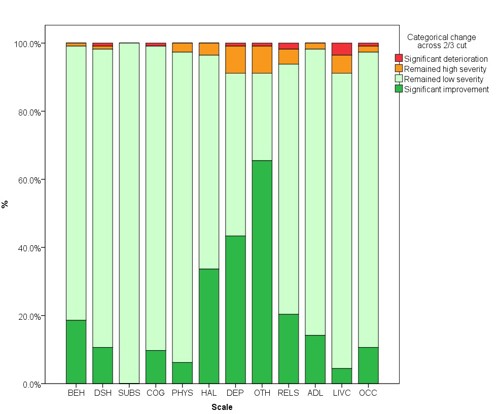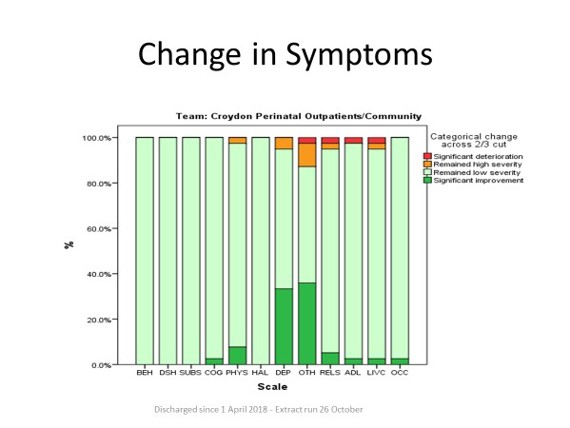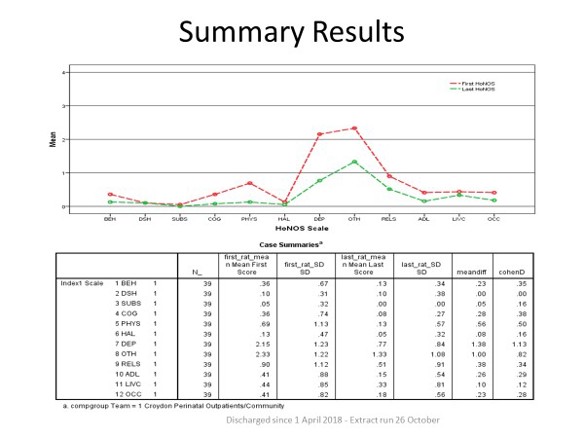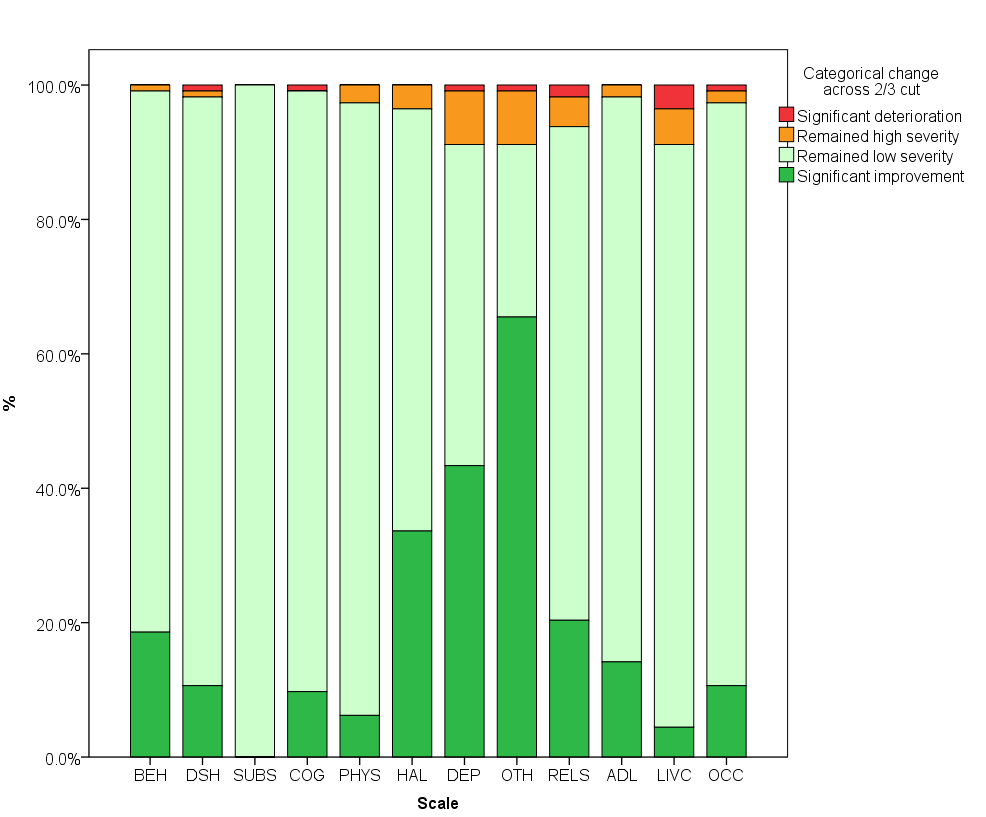SLaM have been using the Health of the Nation Outcome Scale (HoNOS) as one of the clinician rated outcome measures, both in the Channi Kumar Mother and Baby Unit (MBU) and Specialist Community Perinatal Mental Health Teams across the boroughs of Lambeth, Southwark, Lewisham and Croydon.
It is usually used at initial assessment, discharge and at key points of change (e.g. birth of the baby) and usually a minimum of every 6 months. In the community, not everyone will get a second rating due to e.g. only having a single assessment or not completing the treatment if an episode of care ended in an unplanned way.
HoNOS is usually completed by the psychiatrists and nurses and there are discussions about the ratings between staff to ensure reliability. The data is discussed with teams at least annually, if possible 6-12 months. SLaM are in the process of developing a HoNOS dashboard in order to extract and demonstrate the data more easily and share with services users on a regular basis. SLaM is involved in a Trust-wide Quality Improvement programme to create a culture of embedding routine clinical outcome measures into clinical practice, as a way of improving quality for service users and carers.
MOTHER AND BABY UNIT
The graph above demonstrates significant improvement in HoNOS total scores (n=141) between admission and discharge, irrespective of diagnostic group. There were significant improvements in all HoNOS domain scores, except in living conditions domain, irrespective of diagnostic group. The relationship domain includes difficulties in relationship with partner/others including the baby. As the MBU does not accept women with a primary substance misuse/alcohol problem, this domain is ‘zero’. Published in: Stephenson, L. A., Macdonald, A. J., Seneviratne, G., Waites, F., & Pawlby, S. (2018). Mother and Baby Units matter: improved outcomes for both. BJPsych Open, 4(3), 119-125.

SPECIALIST COMMUNITY PERINATAL MENTAL HEALTH TEAMS
Paired HoNOS data for one team are presented over a six month period, analysed for those service users who had completed their treatment and had a HoNOS score at both assessment and at discharge (n=39). Effect size was large 1.76 (for Cohen’s d, an effect size above 0.8 is considered large). This analysis did not differentiate women who presented as well at the time of assessment but were seen because they were at high risk of relapse (e.g. diagnosis of bipolar disorder or history of post-partum psychosis). However, the presence of these women would reduce the effect size rather than inflate it, so it does not detract from the validity of the finding. Using a larger data set from a longer time period might enable these data to be separated and analysed more meaningfully. Future reporting will also consider other issues such as length of treatment, diagnosis and ethnicity.

SUMMARY OF RESULTS

The Child Outcomes Research Consortium (CORC) in partnership with experts in the field of perinatal mental health from the Anna Freud National Centre for Children and Families (AFNCCF) have been commissioned to provide guidance on best practice and how to overcome common barriers to implementation by producing an Outcome Measurement Implementation Manual and by disseminating the manual, case studies and learning via 12 regional training workshops in collaboration with Perinatal SCNs.
Click here to download the manual
